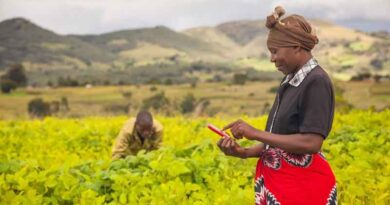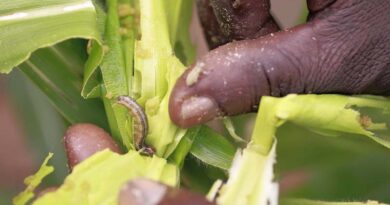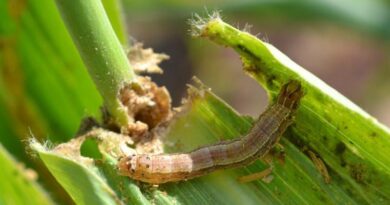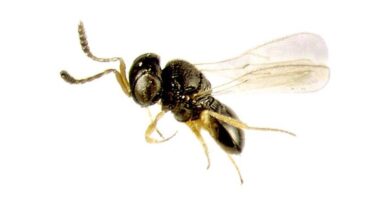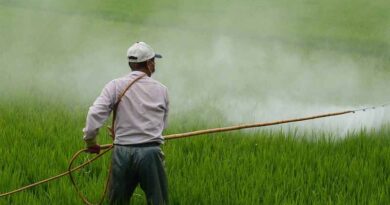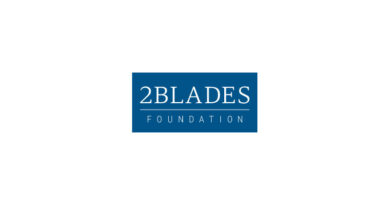Integrated Pest Management is best approach to fighting fall armyworm pest in Botswana, new study reveals
01 December 2021, EU: A new CABI-led study investigating the impacts, farmer management practices and implications for sustainable ways of fighting the fall armyworm (Spodoptera frugiperga) suggests that an Integrated Pest Management (IPM) approach is the best way to tackle the devastating crop pest in Botswana.
The research, led by Fernadis Makale and Dr Ivan Rwomushana and published in the journal Pest Management Science, argues that as no single control strategy will be affective against the fall armyworm, IPM on an area-wide scale is needed to achieve the best results.
The scientists, which included invasive species experts from the Food and Agriculture Organization of the United Nations (FAO) based in Botswana and Zimbabwe as well as researchers from Botswana’s Ministry of Agricultural Development and Food Security (MoA), found that while chemicals remain the ‘go-to option’ for the majority of the 220 farmers surveyed across seven districts – other low-risk technologies exist and are proposed for fall armyworm management.
A campaign involving mass awareness raising, training and demonstrations will be required, the researchers say, in order to achieve this and help mitigate the pest which was confirmed present in Botswana in 2017.
Mr Makale et al argue that the fall armyworm in the 2017-2018 season posed a serious threat to food and nutrition security for vulnerable farming communities and households – through reduction in harvest and increased production costs as a result of increased pesticides use – and continues to do so.
The latest study sought to estimate the impacts of fall armyworm on crop yield and farmers’ livelihoods in Botswana in the 2018/19 cropping season and to obtain data that could be extrapolated to national level. Farmer knowledge of the pest, management practices and pesticide use for fall armyworm management were also assessed.
It was found that 76% of the respondents had seen fall armyworm in their farms – affecting almost the entire and about half of the area for maize and sorghum respectively. Only 51% implemented control measures, with chemical pesticides being the most common option adopted for more than half (27%) of farmers.
Drought was ranked the major stress experienced by the famers (35%), and also resulted in significant yield reducing effects on maize yield with pest and diseases reported second most important. Pesticides (20%) and training on pest management (18%) were the top ranked needs by farmers.
Mr Makale said, “This study shows that farmers were not aware of available lower risk options for fall armyworm management.
“The majority farmers based a large part of their fall armyworm management practices on pesticides with a few using cultural and physical methods, based on indigenous knowledge, either in isolation or combination. These included the hand picking of eggs masses and caterpillars and the application of ash/sand to the larvae in whorls.
“Even with low levels of efficacy, these methods could provide alternative opportunities to expand the scope of an IPM programme. However, validation and standardisation by research are needed before wide-scale promotion, that includes awareness raising and training of IPM methods, can be implemented.”


